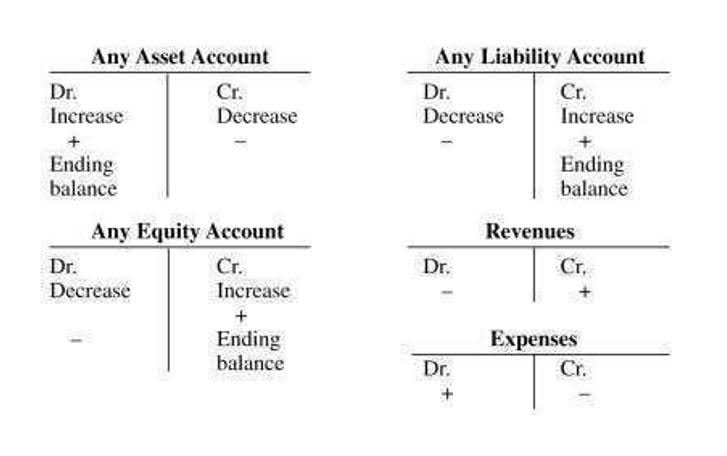Bookkeeping
Escrow Accounts, Iola and Ethics New York State Bar Association

In essence, trust accounts are more than just a banking requirement—they are a fundamental part of what it means to be a lawyer who puts clients’ interests first. Client funds are deposited in an IOLTA account when the funds cannot otherwise earn enough income for the client to be more than the cost of securing that income. The client – and not the IOLTA program – receives the interest if the funds are large enough or will be held for a long enough period of time to generate net interest that is sufficient to allocate directly to the client. Q. In establishing its interest rates, can a financial institution factor in its specialized customer service? How a financial institution structures its rates internally is its own decision and, of course, financial institutions may choose to provide value to their customers in ways other than rates, including higher levels of service. In order to comply with the Rule, COLTAF must only ensure that COLTAF accounts are being treated equally and earning the same rates as other comparable accounts, whatever those rates are.
Background on Lawyer Trust Accounts
Another common pitfall with trust accounts is failing to promptly deposit client funds into the trust account upon receipt. The client intake process can be incredibly time-consuming, so it’s wise to utilize tools to make you and your client’s lives easier during the process. Lawyer trust accounts, including IOLTA accounts, shall be maintained only in eligible financial institutions approved by the Office of Lawyers Professional Responsibility. Every check, draft, electronic transfer, or other withdrawal instrument or authorization shall be personally signed or, in the case of electronic, telephone, or wire transfer, directed by one or more lawyers authorized by the law firm. Despite these differences, common threads run through all IOLTA programs. These commonalities include the necessity for law firms to clearly label accounts as trust or client accounts and maintain a strict separation between client funds and personal or business funds.

Who pays any costs of maintaining these accounts, for example, bank service charges, if imposed?
This program manages client funds held in trust by lawyers, which are typically nominal in amount or deposited for a short period only. Any interest earned on these funds is pooled together and used for legal aid, increasing access to justice for those who are unable to afford it. Once you open the account, you may want to structure your unearned and earned fees in a way that leads to minimal use of said trust account. Some states have exemptions that don’t require lawyers to open a trust account should they charge a flat fee under a certain amount.
- What follows is a list of frequently asked question regarding all aspects of trust accounts.
- If an attorney determines that the funds are not nominal or short-term, then the funds must be deposited into an interest-bearing account and all interest must go to the benefit of the client.
- Nothing herein shall preclude a financial institution from charging a particular lawyer or law firm for the reasonable cost of producing the report and records required by this rule.
- This trust is the foundation upon which the attorney-client relationship is built, and lawyers are responsible for safeguarding it at all costs.
- Q. Do we have to create multiple types of COLTAF accounts based upon different qualifications and rates?
- Keep in mind, however, that opening a separate checking account alone isn’t sufficient.
Difference Between IOLTA vs IOLA
COLTAF is the Colorado Lawyer Trust Account Foundation, which administers Colorado’s IOLTA program. IOLTA is an acronym for “Interest on Lawyers’ Trust Accounts”, a program which collects and uses interest from certain lawyer trust accounts for civil legal aid and other charitable justice-related activities. Under RPC 1.15A(e), a lawyer must provide a written accounting after distribution of funds or on request. In the absence of a request or a distribution, the lawyer must provide an accounting at least annually.
Proper trust accounting practices are essential for managing a lawyer trust account and avoiding issues related to improper fund management. A lawyer cannot maintain the lawyer’s own funds in his or her client trust account as a “cushion” to prevent inadvertent overdrafts or to cover the lawyer’s writing trust checks on money not yet trial balance collected. Under Rule 1.15(c) of the Illinois Rules of Professional Conduct, however, a lawyer may deposit the lawyer’s own money into the lawyer’s trust account to cover necessary and reasonable bank service charges, such as wire transfer fees. Accurate records must be kept regarding which part of the funds are the lawyers.If you deposit funds from a source and are not sure that it will ultimately be collected, wait and confirm with your bank before writing a trust check. Also, know your bank’s funds availability policy to ascertain when deposited funds become available for withdrawal and when they are expected to clear.

Practice tips
It safeguards against misappropriation or misuse of client monies, ensuring that these funds are only used for their intended purpose. By maintaining a lawyer trust account, attorneys can demonstrate their commitment to maintaining client trust and protecting their assets. Lawyers can establish trust and confidence with their clients through transparency, accurate record-keeping, and strict compliance with ethical rules and regulations.
What is trust money?

Trustbooks has completely changed my view on trust accounting for my firm. It takes Bookkeeping for Consultants into account all of the trust accounting requirements of the State Bar and helps make sure you comply with them. Trustbooks has simplified the trust accounting for my firm and I no longer dread doing reconciliations or an audit from the State Bar. At least with the 3-part one write system, the transactions were visible and easy to find.
Resources and Support for Lawyers to Comply with Trust Account Rules
- As an aside, this interest is used to fund legal aid programs and other charitable activities.
- The trust account declaration question should be answered according to the facts as they exist on the date the information is certified.
- However, a lawyer may not hold funds to coerce a client into accepting the lawyer’s contention.
- With Clio Accounting, you can effortlessly manage your trust bank accounts and transactions and conduct three-way reconciliation—Book a Clio Accounting demo to see how seamless accounting can become.
- Lawyers must maintain their COLTAF accounts in an Approved Institution.
- Under IOLTA, if a client’s funds are not nominal in amount or are not to be held for a short period of time, the lawyer should establish a separate trust account paying interest to the client.
See In re Enstrom, supra; In re Clayter, (1980), 78 Ill.2d 276, 281, 35 Ill.Dec. 790, 399 N.E.2d 1318; In re Elias, 114 Ill.2d 321, 499 N.E.2d, attorney trust account 1327, 1331 (1986). Banks report trust account overdrafts and checks presented against insufficient funds (whether or not paid) to the Washington State Bar Association. Lawyers, LPOs, and LLLTs are also required to notify the WSBA of a trust account overdraft. If you’re an attorney managing trust accounts, it is therefore very important that you understand trust accounting and how you can avoid common mistakes with this kind of accounting. Additionally, attorneys might turn to more generalized accounting solutions like QuickBooks Online or Xero for managing their financials and record keeping, rather than Excel spreadsheets.
Resources to help with trust accounts

The WSBA Trust Account Declaration relates only to trust accounts maintained for the deposit of client funds received in connection with representations undertaken using your Washington license. All states and provinces have different requirements regarding safekeeping of client funds. When you receive client funds, you must analyze if you are holding these funds in connection with a representation where you are using your Washington license.
